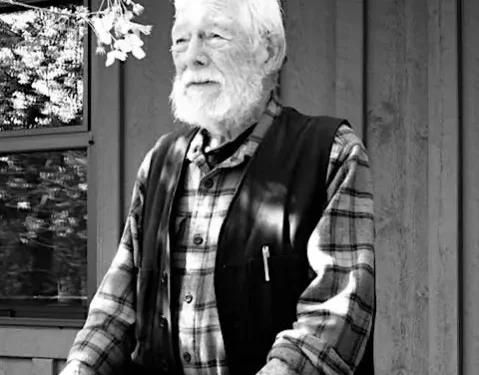Gary Snyder: An Exploration of His Influence as an American Poet
Which American poet is most famous for his long poems that celebrated the United States?,Who was one of the most influential poets in the English language and probably?,Which of the following authors was the first African American poet laureate of the United States?,Who is nature poet of America?,
Gary Snyder stands as a towering figure in American poetry, celebrated for his profound connection to nature, deep-rooted Zen Buddhist philosophy, and steadfast commitment to environmental activism. His literary contributions have not only captured the essence of the American landscape but have also served as a medium for exploring themes ranging from ecology and spirituality to the human condition. This essay aims to delve into Snyder’s significant impact as an American poet, examining the fundamental elements of his work, his literary influences, and his enduring legacy in both poetry and environmental discourse.Gary Snyder: An Exploration of His Influence as an American Poet
Early Life and Influences:
Gary Snyder, born on May 8, 1930, in San Francisco, California, was deeply influenced by the wilderness of the Pacific Northwest during his formative years. His upbringing instilled in him a profound reverence for nature, a theme that would permeate his poetry. Additionally, Snyder’s exposure to Asian culture and Zen Buddhist philosophy, particularly through the works of D.T. Suzuki, profoundly shaped his worldview and artistic sensibilities.
Also Read-
- Allen Ginsberg: A Revolutionary Voice in American Poetry
- Asian Pacific American Poetry in a Mosaic of Voices
- How is Surrealism related to unconsciousness and dreams
Literary Career and Themes:
Zen Buddhism and Spiritual Inquiry:
Central to Snyder’s poetic ethos is his deep engagement with Zen Buddhism and Eastern philosophies. Immersing himself in Zen meditation during his time in Japan, Snyder absorbed the teachings of Zen masters and seamlessly integrated Buddhist principles into his poetic practice. This influence is palpable in Snyder’s minimalist style, his emphasis on mindfulness and presence, and his exploration of the profound interconnectedness of all phenomena. For Snyder, poetry becomes a form of spiritual inquiry, a means of transcending the self and communing with the essence of existence.
Environmental Activism and Social Critique:
Beyond his literary endeavors, Snyder is renowned for his activism and advocacy on behalf of the environment. He has been an outspoken critic of industrialization, consumerism, and the exploitation of natural resources, sounding the alarm on the ecological crisis facing the planet. Snyder’s commitment to sustainable living and grassroots environmental movements underscores his deep ecological ethos, which permeates not only his poetry but also his personal ethos.Gary Snyder: An Exploration of His Influence as an American Poet
Legacy and Influence:
Gary Snyder’s contributions to American poetry and environmental discourse are profound and enduring. His unique synthesis of literary prowess, spiritual insight, and ecological consciousness continues to inspire generations of poets, activists, and scholars worldwide. Snyder’s influence transcends the realm of literature, permeating the broader environmental movement and shaping dialogues on sustainability, conservation, and humanity’s relationship with the natural world.Gary Snyder: An Exploration of His Influence as an American Poet
As we navigate the ecological challenges of the 21st century, Snyder’s poetry serves as a poignant reminder of the interconnectedness of all life and the urgent need for collective action to safeguard the Earth. In celebrating Gary Snyder’s legacy, we honor a poet whose words resonate with timeless wisdom, inviting us to reevaluate our place within the web of existence and to embrace a more harmonious relationship with the natural world.
Conclusion
Gary Snyder’s impact as an American poet transcends mere literary achievement; it embodies a profound synthesis of ecological consciousness, spiritual inquiry, and social activism. Through his poetry, Snyder has woven a tapestry of reverence for the natural world, exploring themes of interconnectedness, mindfulness, and environmental stewardship.Gary Snyder: An Exploration of His Influence as an American Poet
His deep engagement with Zen Buddhism and Eastern philosophy infuses his work with a timeless wisdom that continues to inspire readers across generations. Snyder’s legacy extends beyond the realm of literature, resonating deeply in the environmental movement and influencing discussions on sustainability and humanity’s relationship with the Earth.Gary Snyder: An Exploration of His Influence as an American Poet
FAQ:
1. What are Gary Snyder’s major influences as a poet?
Gary Snyder’s poetry is deeply influenced by his love for nature, his immersion in Zen Buddhism and Eastern philosophy, and his experiences in the Pacific Northwest wilderness.
2. How does Snyder’s poetry reflect his environmental activism?
Snyder’s poetry often celebrates the beauty of nature while also lamenting humanity’s destructive impact on the environment. He uses his poetic voice to advocate for ecological stewardship and raise awareness about environmental issues.
3. What distinguishes Snyder’s poetry from that of his contemporaries?
Snyder’s poetry stands out for its ecological consciousness, minimalist style, and deep engagement with Zen Buddhism. While he shares the countercultural spirit of his contemporaries, his work is uniquely informed by his environmental activism and spiritual inquiry.
4. What is Gary Snyder’s legacy in American literature?
Gary Snyder’s legacy in American literature is characterized by his profound influence on ecological thought and his role as a poetic voice for environmental activism. His work continues to inspire readers and activists alike, serving as a timeless reminder of the interconnectedness of all life.
5. How does Snyder’s poetry address the challenges of the 21st century?
Snyder’s poetry remains as relevant as ever in addressing the ecological challenges of the 21st century. By advocating for sustainability, conservation, and mindfulness, Snyder’s work offers a powerful call to action in the face of environmental crisis.













